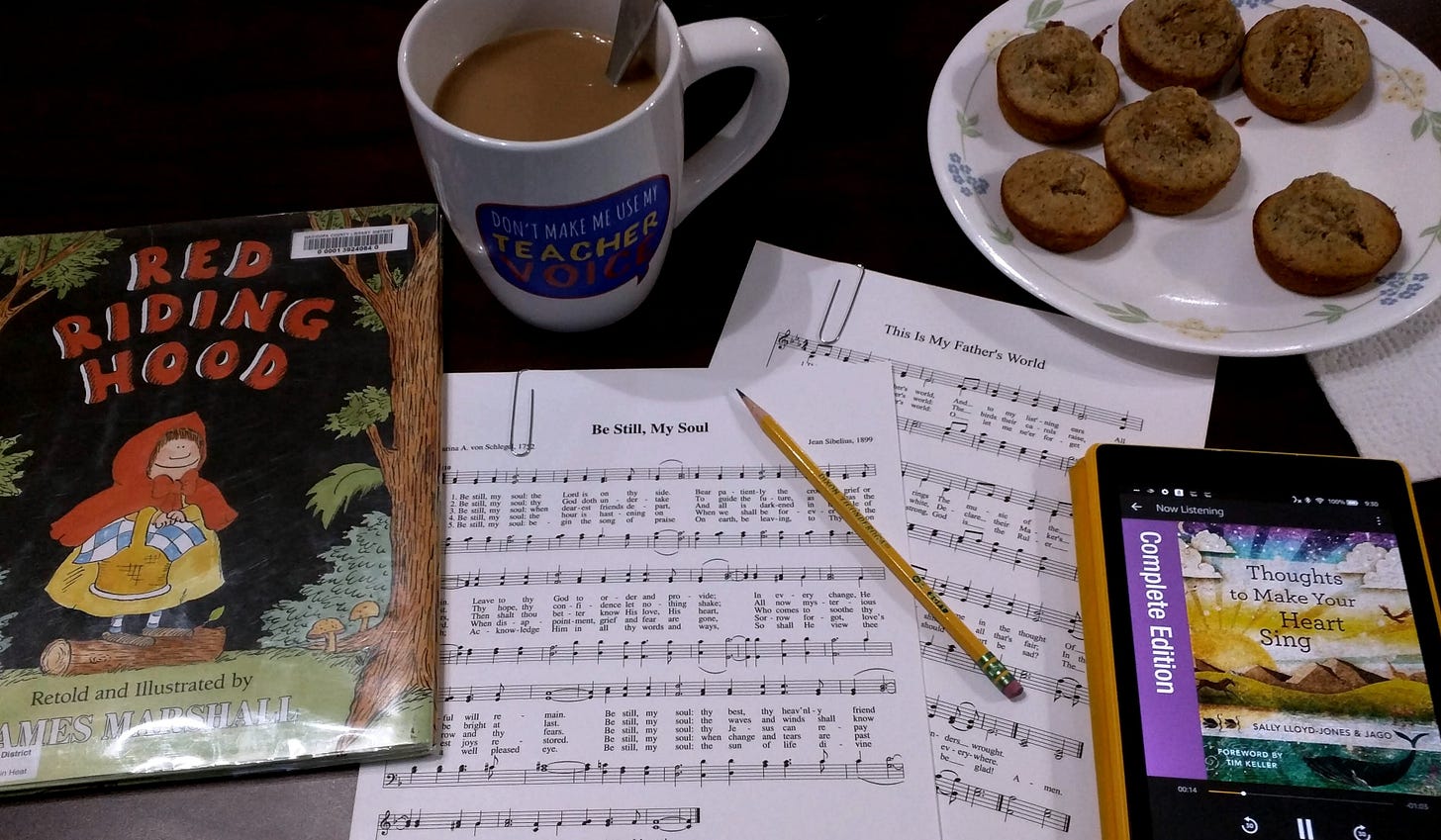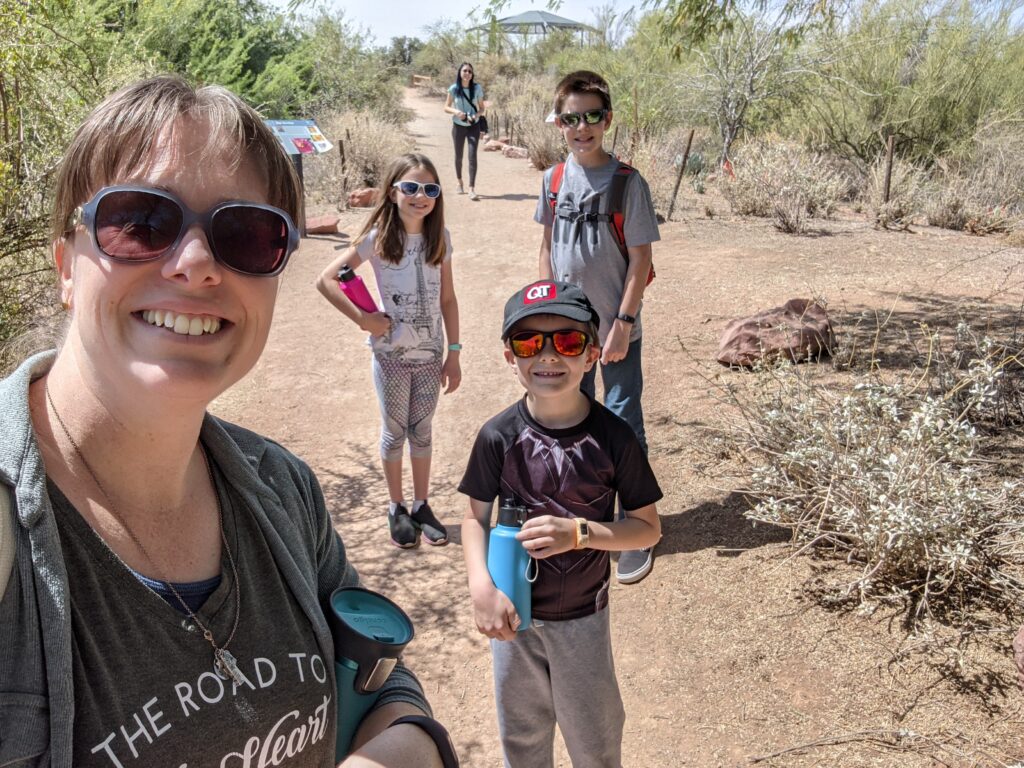12 lessons from 15 years of homeschooling—what I’ve learned, what I’d do differently, and what I wish I knew sooner
If you’re a homeschooler, this one’s for you! But even if you’re not, I think you’ll find encouragement here too. This post is a bit longer than usual because I wanted to share plenty of encouragement, but don’t worry—next Tuesday, I’ll be back with a shorter, practical post to help you live deliberately and avoid overwhelm. 💙
Over the past 15 years of homeschooling and 19 years of parenting, I’ve learned so much—through trial and error, through wisdom from others, and through simply living the days.
Sometimes, I wish I could sit down with my younger self over coffee and share what I know now. I think she’d be eager to listen, but also confident in the skills she was slowly growing.
So let’s imagine we’re having that coffee together! ☕🍵
If we were face-to-face, I’d want to hear about what’s hard for you right now. I’d listen to your struggles, your frustrations, and the moments that didn’t go as planned.
If you asked me for advice, I’d share one (or maybe a few) of these 12 things I’ve learned along the way.

#1 – You are doing enough.
The culture that you are creating in your home means so much more than the actual lessons that they are learning. Yes, a very small amount of homeschoolers are indeed teaching their first graders Latin. Yes, catalogs and emails are showing up with stacks of curriculum and things to try. Yes, there are books you can read that say with rude authority that “This is the right way to do homeschooling.” But, you are doing enough. Don’t get distracted from what is important to your family.
#2 – Your learning and personal growth matters just as much as your kids.
You can not give unless you have something to draw from. It is so important to read and gather new ideas, work on relationships, and learn about topics we find interesting. We each need our own full wells of information to draw upon and use in conversations and life.
#3 – Take your time and do things your own way.
There is no magical time schedule to follow to meet other people’s standards. Even the areas that seem rigid are much more flexible than you think. There is no perfect way to do things or a perfect time to read a specific book. Listen to your gut and you will know when your kids are ready.
- I love this post from Pam Barnhill about Morning Time and group work.

#4 – Bring in other teachers as part of your homeschool team.
Choose to teach the areas that you love and then outsource the ones you dislike or take too much energy. This is not failure, this is smart planning.
Kids learn in so many different ways. Sitting next to me while I guide them through a lesson is only one way. (And it is time-consuming and energy-draining.) You can use online teachers that offer free resources on YouTube, you can use a curriculum with a built-in teacher, and you can participate in co-ops and classes.
#5 – Include Quiet Time in your day, but not necessarily in the mornings.
Make space in the day for everyone to be alone. Being together all day long is hard on all of us. Be kind to yourself and give everyone a break from each other after lunch. I did this some but I wish I would have done this more. We all need to learn to spend time on our own. This will take training but will be useful down the road.
- I love this post about Morning Quiet times and finding time to yourself by Pam Barnhill. (she is a wealth of knowledge)
#6 – Invest in Friendships
Friendships are so very important. You can not do this alone. Create community and participate in quality friendships. Be the kind of friend that you need. Ask other people good questions and listen well. Offer help and ask for it. Let there be a give and take. Do not be the only one giving of yourself and your time.
#7 – Enjoy each season that you are in.
Every year will be different. This is the only year where I have a student in 12th grade, 7th grade, and 4th grade. Next year will be different. Each season of parenting and homeschooling is hard in its own unique ways. But, it will only happen once.
Find joy and focus on the good things. It is so easy to get bogged down in our failures and mess-ups. Or to be distracted by the noise and chaos that small kids make.
#8 – Spend time thinking about routines and rhythms.
Create routines for all the necessary things that must be done. Household tasks, planning and making meals, yard work, paperwork, cleaning… When we automate pieces of our lives with routines we remove decision fatigue, we become more efficient, and we can relax into the rhythm of the tasks ahead of us.
I enjoy sitting down with a cup of tea and doing all the thinking once. I plan out what tasks need to be completed and then write them out for myself.
#9 – Take more time off.
Take breaks. Be creative with your holidays and school schedule. Unless your state requires it, you have the freedom to get school done on whatever days you choose. Maybe it works for your family to do school lessons 4 days a week or to take a break every 6 weeks. Would it be helpful to do more school in the heat of the summer and less in the enjoyable spring weather? Figure out what your flexibility is and then work with it.
Sabbath schooling is something I discovered after 5 years of homeschool and it completely changed the way that I plan our school year. (see here for more info)
#10 – Don’t grade the papers in Elementary school.
Just check them over and stamp them for fun. You would not believe how much time I wasted on grading work when my kids were younger. Because of the one-on-one instruction, our kids are getting we know how they are doing. We know when they get a lesson and when they are struggling. We will not move forward without them. Grading can be a time waster.
#11 – Make space for questions.
Even if they do not pertain to the assignment or that topic. Follow the rabbit holes and have fun learning something together. Recently we attended an orchestra concert that sparked some questions about instruments and how they are part of a piece of music. We have enjoyed learning about all the families of instruments and different composers. It has been a pleasant unexpected learning journey for all of us.
- Go to the library and find stacks of books on topics that grab your kids attention.
- Look up YouTube videos on things they enjoy.
- Stretch your knowledge with a field trip to a museum or science center.
- Have a conversation with a relative who has experience with the topic.
#12 – Know that you have plenty of time to teach all the subjects.
If you don’t get to something this year, you can do it next year. Leave the elementary school teacher mindset of cramming as much knowledge into the kids as you can. You have a lifetime to share ideas, teach them new things, and grow in knowledge. There will be gaps no matter how amazing you are as a homeschool teacher. We can only do our best. I hope that they remember the fun Egypt unit from 2nd grade, the Tall Tales books read aloud, and the European Geography lessons.
Choose one additional subject to teach along side the basics this year. Have fun with it and don’t try to cover everything.
- Some theme ides for Elementary School:
- Art History & Masterpieces
- World Geography
- Botany
- Inventions
- Composers & Musical Instruments
- Baking
- Famous Landmarks
- Drawing
- Computer Coding
- World Language Lessons
- Sculpture
- Airplanes and Flight
- Astronomy
- Sewing & Weaving
- Cooking
- USA Geography
- Zoology
- Ancient Cultures
- Weather & Seasons

I hope you’ve found some encouragement here.
Whatever your school year looks like—whether it’s going smoothly or feels like a daily uphill climb—you can move forward with fresh ideas and renewed energy.
Remember, homeschooling is not about perfection; it’s about growth, connection, and showing up, day after day.
Have grace with yourself as you guide your kids in their education and daily lessons. Celebrate the small wins, embrace the messy moments, and trust that what you’re doing matters. Your kids are learning from more than just books and lessons—they’re learning from you.
You are enough, and you are doing important, beautiful work. Keep going!
Hugs & Support!
